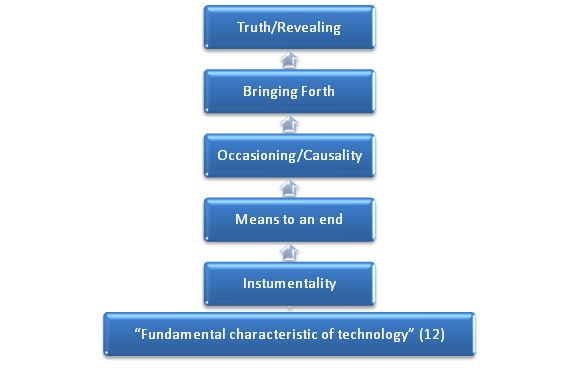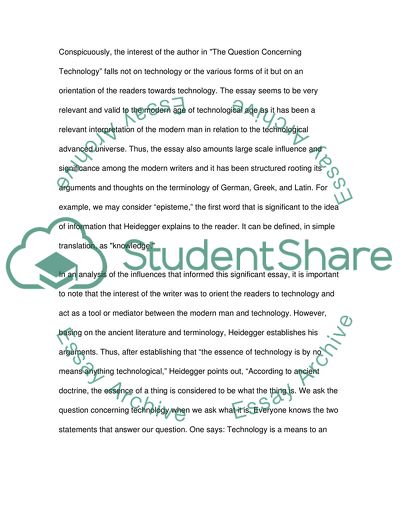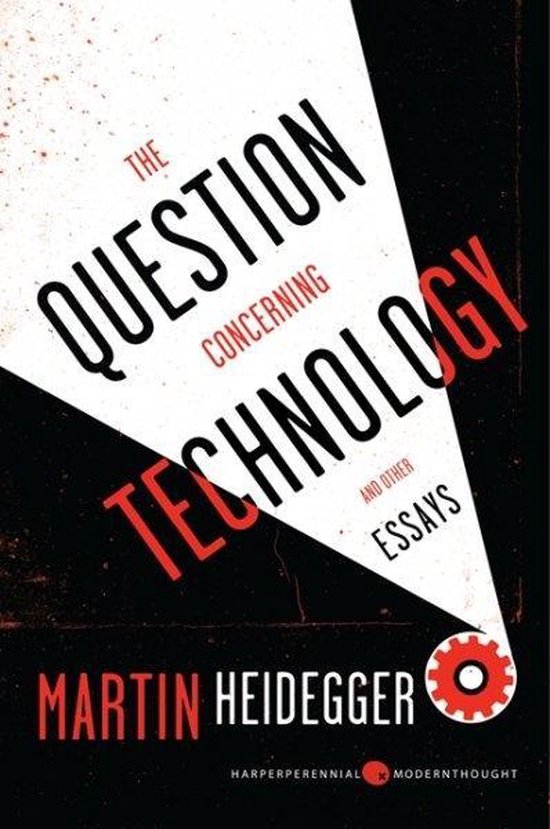In his essay "The Question Concerning Technology," Martin Heidegger confronts the notion that technology is solely a means to an end and argues that it is in fact a way of revealing the world. He asserts that modern technology, which he refers to as "enframing," has a way of presenting the world as a set of resources that can be exploited for human purposes. This enframing, according to Heidegger, obscures the true nature of things and reduces them to mere instruments for human use.
Heidegger's critique of technology begins with a critique of the modern worldview, which he calls "the age of the world picture." In this age, the world is seen as a collection of objects that can be studied and understood through the application of scientific and technological methods. This worldview is based on the belief that everything can be reduced to quantifiable phenomena that can be measured and controlled.
Heidegger argues that this way of understanding the world is fundamentally flawed because it ignores the fact that things have their own intrinsic nature and meaning. When we see the world as a collection of resources to be exploited, we lose sight of the fact that things have their own inherent value and purpose. Instead of respecting the inherent nature of things, we treat them as mere means to our own ends.
Heidegger also argues that technology has a way of distorting our relationship with the world. When we rely on technology to reveal the world to us, we become detached from the world and its natural rhythms. We become reliant on machines and tools to mediate our experience of the world, and we lose touch with the intrinsic nature of things.
In conclusion, Heidegger's "The Question Concerning Technology" offers a poignant critique of the modern worldview and its reliance on technology. He argues that this reliance on technology obscures the true nature of things and reduces them to mere instruments for human use. He suggests that we need to find a way to cultivate a deeper understanding and appreciation of the inherent nature and value of things in order to live more meaningful and authentic lives.
The Question Concerning Technology

As he states, this threat "does not come in the first instance from the potentially lethal machines and apparatus of technology". These difficulties are not that much of problem--they just require patience and a willingness to learn a few new words and concepts. The peasant takes care of the land, cultivates it, and hopes to get a good yield. Heidegger shows that what qualifies as science and technology for the minority world today, has not always been the way it has been defined. More than that, modern technology is the result of the work of machinery rather than of human activity.
Summarize “The Question Concerning Technology” by Martin Heidegger.

Although, technological development influences the way of human thinking in quite a negative way Heidegger does not believe that mankind should stop making technological inventions as far as it is not real salvation. All things around us have become the source of human exploitation. The relationships between a human being and nature which have been so close at the beginning of civilization are destroyed with the development of technologies. It is at this point that Heidegger has encountered a The question concerning technology, Heidegger concludes, is one "concerning the constellation in which revealing and concealing, in which the coming to presence of the truth comes to pass". Additionally, his method of argumentation is so dependent upon etymology--tracing the historical development of the meanings of words--that his text sometimes becomes peppered with intimidating foreign terms.
Heidegger

People cannot imagine their life without modern technologies and as a result, we do not even pay attention to its influence over our life and the way of thinking. Physics as science has begun to be used not only to justify the surrounding world but to demonstrate how it may be used to make human life better. As Heidegger points out, this way of thinking then comes to colour our perception and changes our orientation to the world and in so doing creates the real danger that a vital form of communication, which still retains the capability to connect us to a source of value that lies beyond the instrumental, will be lost. Truth is connected not only with knowledge, but it refers to all the objects surrounding us. As to if he agrees that this is a good thing, the answer would be no.







